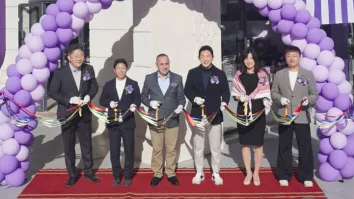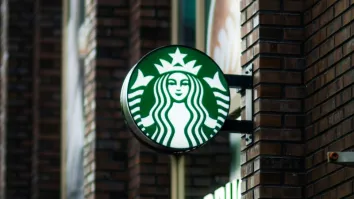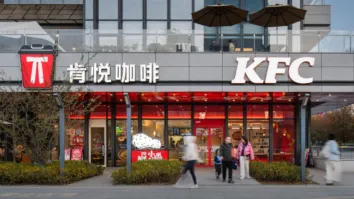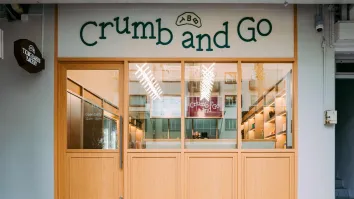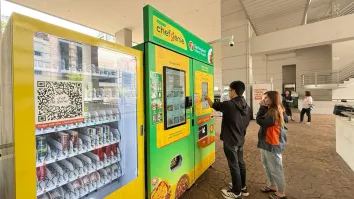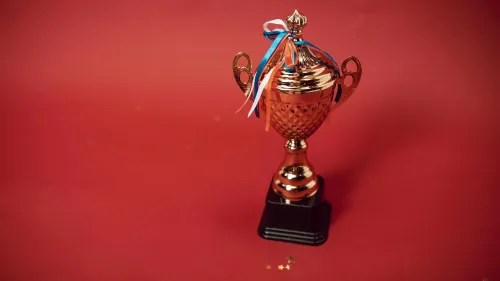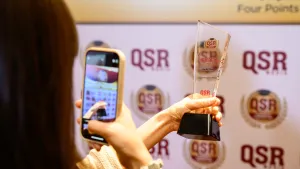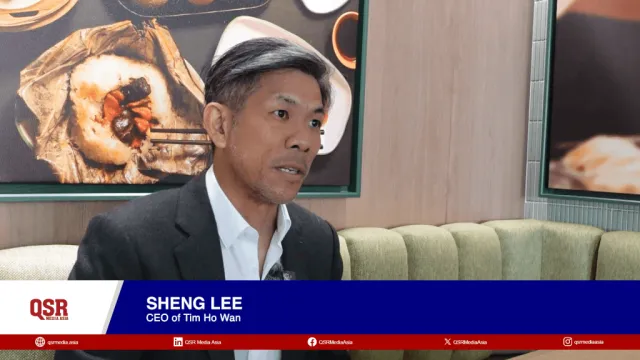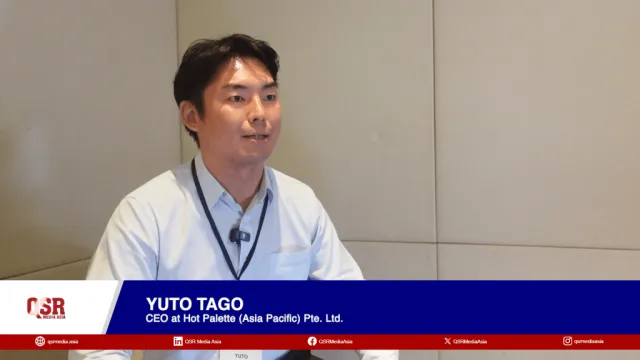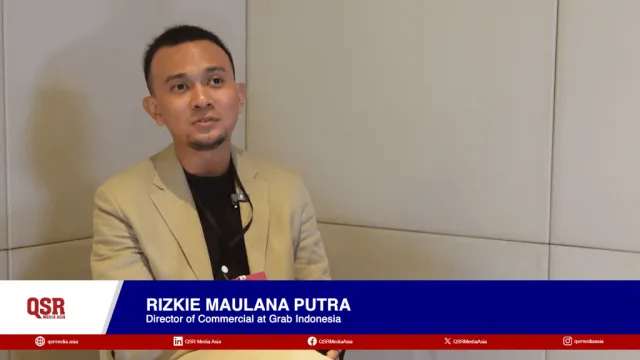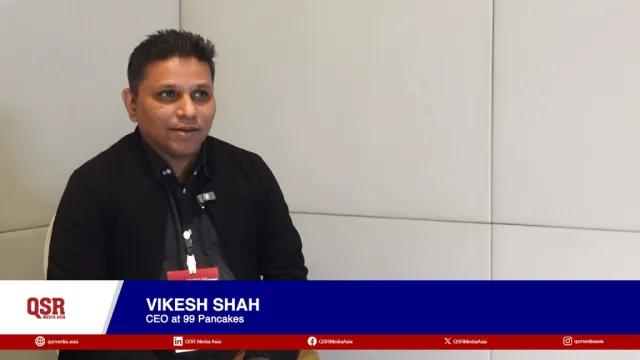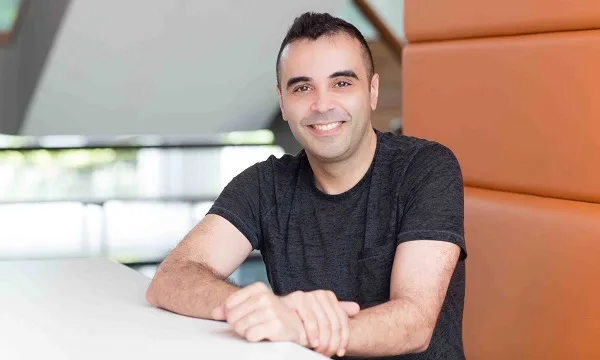
How a financial and hospitality tycoon is planning to shake up Singapore's fast casual restaurant industry
Find out how a businessman from New Jersey plans to make Deelish Brands a household name throughout Southeast Asia.
Over the course of his career, Moe Ibrahim has made a name for himself in the U.S. financial industry, rising through the ranks to become the Vice President of the financial advisory and asset management firm Lazard straight after university.
He found his own investment management firm and even launched The Asian Debt Fund, an Asian distressed assets hedge fund that won him awards like the Institutional Investors’ Magazine’s “20 Rising Stars of Hedge Funds” in 2007.
Afterwards, he ventured on to the hospitality sector in 2012, acquiring and becoming the President Director at Bintan Lagoon Resort, a 500-room Indonesian luxury resort.
It was during this period that Ibrahim fell in love with the restaurant business.
“During my tenure [at Bintan Lagoon Resort], I executed a successful turnaround resulting from a complete brand reboot along with an organizational overhaul. I also created nearly a dozen new F&B concepts which were extremely well received by guests. In fact, by the time I sold the business, F&B revenue was higher than room revenue. Needless to say, as a result of this experience, I fell deeply in love with the F&B space and decided to focus on it full-time,” he told QSR Media in an exclusive interview.
Now, becoming the founder and chief executive of franchise management company Deelish Brands, Ibrahim has set his sights on bringing a selection of restaurant brands to Southeast Asia, with a goal of becoming the largest franchise management company in Asia by 2030.
“This is a very big, audacious goal, but I believe it's achievable. We plan to grow in a variety of ways. We will grow organically by continuing to open locations. We will grow with partners by identifying franchisees who want to leverage our experience and get into the fast casual space with a proven team. We will grow through acquisition, by identifying exciting new restaurant concepts and acquiring them,” he said.
“We will also grow through the love and support of our customer base. Keeping our customers happy is the foundation upon which Deelish Brands is built.”
Currently, Deelish owns the master franchising license for the American brands Fatburger and Buffalo’s in Singapore.
Finding market gaps
The core of Ibrahim’s strategy lies in finding significant gaps in the market. He believes that despite the apparent maturity of Singapore’s restaurant industry, there still remains a lot of opportunity in interesting fast casual restaurants or halal concepts.
“In Singapore, there is a lack of fast casual restaurant brands. In addition, there is a lack of interesting halal concepts. These are both huge markets that are underserved. Deelish Brands combines both by taking trendy fast casual restaurant brands, adapting the menu for the halal consumer, and launching them in Southeast Asia. This is what makes us different,” he said.
He is also keeping a close watch on the relevant trends disrupting the industry, such as advancements in food science leading to the realization of plant-based meat, as well as innovations in systems solutions and third party delivery platforms. Currently, Ibrahim noted that they have recently changed their brands’ point-of-sale systems to take advantage of the latest cloud-based and open API (application programming interface) software available.
“Similarly, tools to control our expenses, automate ordering [and] manage our staff schedules are all getting better by the day. Third-party delivery platforms are enabling us to connect with an online consumer base, not just the customers who are walking past our restaurants. Combine all of this with AI, machine learning, visual recognition, etc and you can't help but get excited about the unlimited possibilities to create products and experiences that excite consumers,” he said.
“We spend a lot of time on implementing and understanding new technologies. We look to both automate our business and engage with our customers in new and innovative ways whenever possible. We expect to introduce touch screen kiosks to our operations in the coming months; and we are working on the foundations of a new loyalty system that we believe is quite exciting.”

Deelish Brands is the master franchisee for Fatburger in Singapore. Photo: Supplied
Ibrahim wants to position Deelish Brands right at the forefront of innovation. Adapting to the growing demand for plant-based meat in Southeast Asia, they have also partnered with Impossible Foods to bring its plant-based burgers to customers in Singapore.
“We love it. Impossible is an amazing company and I believe we're one of their top performers in the Singapore market. I expect more innovation in this space,” he said.
(Also read: Impossible Foods announces US$300 million funding round to accelerate expansion)
“We think it's great for customers who can't eat meat for whatever reason. It's also great for customers who can eat meat and looking to mix it up a bit. This is not a fad, this is a space that will continue to gain market share in the coming years.”
Deelish’s first priority, ultimately, is its food. Deelish Brands only uses fresh ingredients, with meat that is chilled and never frozen. The company’s chicken offerings are farm-to-table, with ingredients delivered fresh every morning.
“Food is customizable and cooked to order. This means we don't begin cooking your food until you order it. It takes you longer to get your food versus a quick-service-restaurant, but that's what differentiates us. It's real food, using the best quality ingredients, cooked to order and delivered at an affordable price. Moreover, our restaurants are beautifully designed, with trendy decor and great music. Topped off with excellent customer service, we believe this is a winning formula,” Ibrahim said.
Deelish Brands also holds the Singapore master franchise license for Blimpie, America's first sub-shop, and expects to launch the brand in Singapore before year-end. Ibrahim said that there are more brands in the pipeline as well, some of which are their own original concepts.


